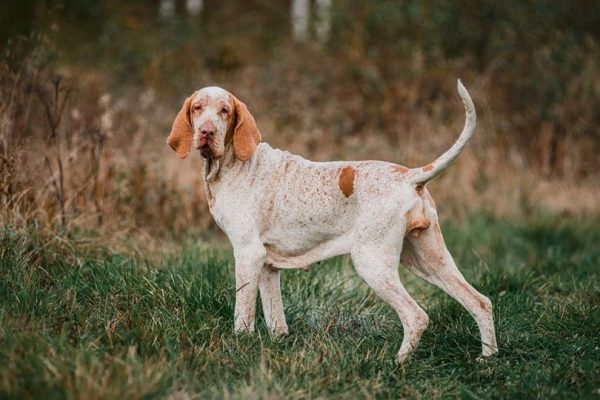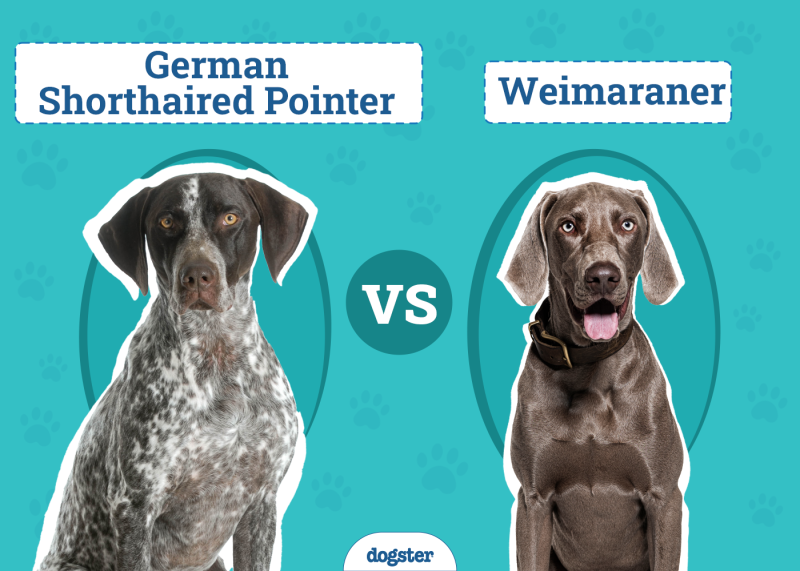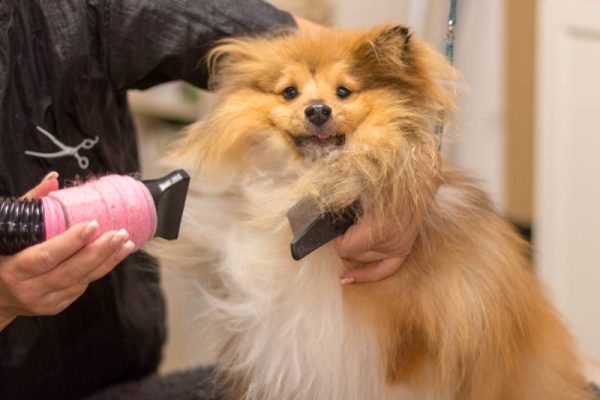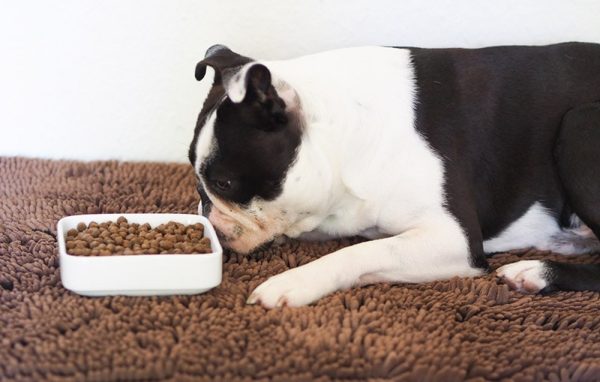In this article
If you are a dog lover who has a soft spot for Pit Bulls, you probably hate hearing the bad rap. After all, we all know it’s not their fault, it’s the humans that create the problem. With all of the problems that come along with the Pit Bull breed, one of the most intense is unregulated breeding.
You might wonder why it’s so hard to find a genuine, authentic Pit Bull breeder that upholds the integrity of the breed at all costs. In this article, we’re going to educate you about the world of Pit Bull breeding so you can understand it better.

Pit Bulls Today: The Good and Bad
Pit Bulls have had quite a colorful history with a checkered past and unique history. These dogs, once trusted as nanny dogs, have gotten a pretty bad rap, thanks to humans. These fearsome, structurally sound creatures were originally bred for fighting purposes, and many bloodlines today still reflect that.
Unfortunately, genetics take quite a while to manipulate, so we are still working diligently to improve pets as generations pass. Pit Bulls are still one of the most common dogs today in shelters everywhere.
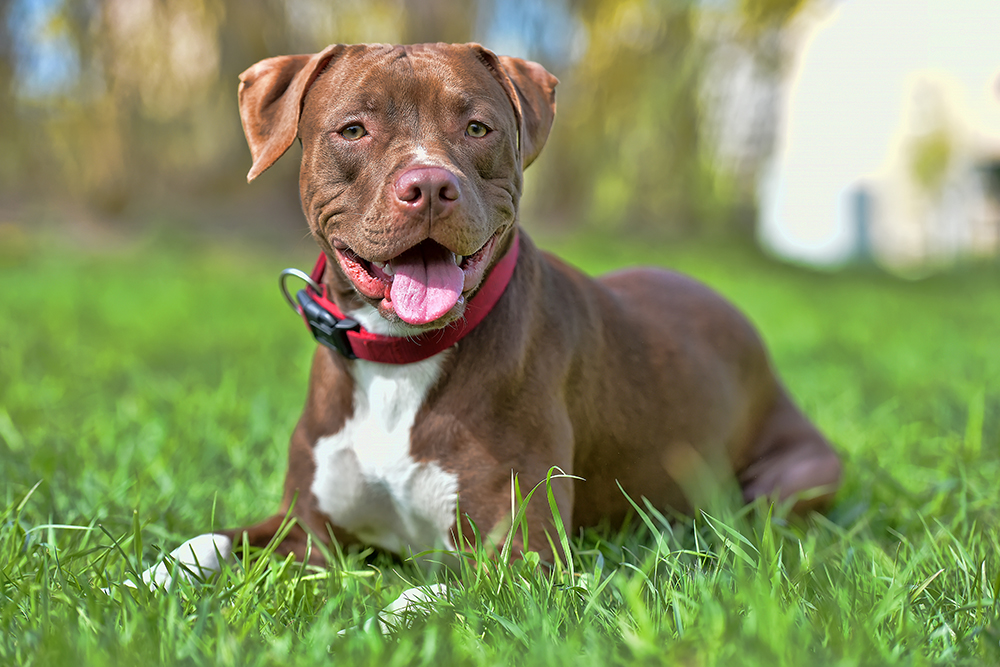
Pit Bulls in the Past
Originally, the Pit Bull was bred for bull baiting, fighting, and guarding purposes. So, right from the rip, they had a very serious role in life. What you are likely more familiar with is the concept of Pit Bulls being fighting dogs.
For years, these animals have been abused and forced to be violent for financial gain. This has led to uncertain temperaments, poor health, and other genetic consequences.
Pit Bulls in the Present
Pit Bulls are recovering from a lot of hatred. People are starting to raise awareness for these wonderful dogs and many pets across the world are being adopted into families.
Pit Bulls still make up a majority of the dogs and shelters these days, but with efforts from animal lovers everywhere, we can eliminate these numbers and put a stop to backyard breeding.
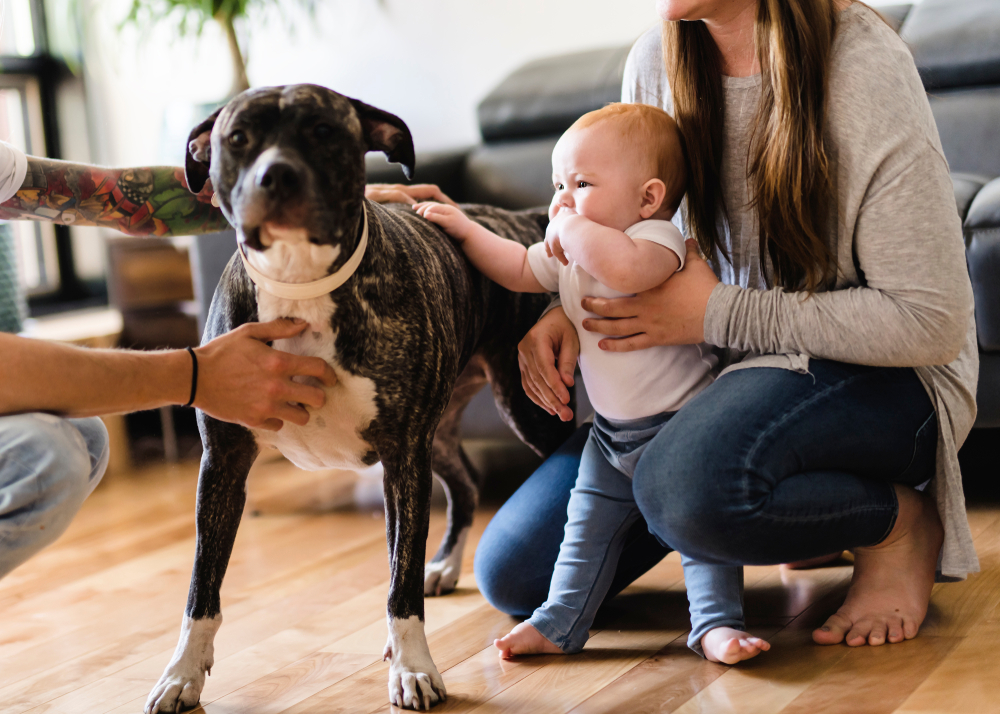
Pit Bulls Are Victims of Major Backyard Breeding
Pit Bulls are still the victims of many backyard breeding operations. Some of them still breed them for fighting purposes while others breed them for pets. Even if people breed them for pets, it is still very frowned upon.
You might have a Pit Bull with the coolest markings ever seen. You might get the wise idea that you should breed the dog to see what other interesting colors you can come up with. But there may be health conditions in the breed that you aren’t aware of that can be passed on to the puppies.
Not to mention, you have to either be able to care for all the puppies or find homes for them. This means that a lot of puppies can end up homeless or not in the best homes, which can further contribute to homelessness and problems in the breed.

Signs of Backyard Breeding
It could be hard to detect backyard breeding if you don’t know what you’re looking for. In fact, because education is being spread about the very subject, people are getting better at covering their tracks. Since the Pit Bull is not AKC registered, they could be harder to regulate in the first place.
- Puppies that seem unhealthy
- The breeder can’t answer questions
- They won’t let you visit their home
- There are no veterinarian records
- The puppies are being given away for free or cheap
- They don’t do health screening before selling you a puppy
What to Do If You Suspect Backyard Breeding
If you suspect backyard breeding, you should waste no time. Since every place will be a little different, check with your local animal shelters or law enforcement to see what can be done.

Many Breeders Don’t Want to Be Part of the Problem
If you have a genuine love for Pit Bulls, and you want to ethically breed them, chances are you want the absolute best for the animal. Because of that, you might hesitate breeding because you don’t want to be part of the problem.
Many Pit Bull breeders face this dilemma. There aren’t a lot of authentic Pit Bull breeders out there. With the obscene number of Pit Bulls in the shelter, it’s actually a good thing!
The fact of the matter is, there is not a solid enough reason to breed an animal, especially not one that already needs a lot of help recovering like the Pit Bull. So many different aspects make a good breeder, and a big part of that is upholding the breed’s integrity.
If you don’t have the knowledge, education, certifications, and guidelines to do this, you are not doing the future puppies a service. However, we still need ethical breeders who can maintain the authenticity of the breed for future generations.
There Is No Universal Breed Standard for Pit Bulls
Another issue with finding responsible Pit Bull breeders is that there is no universal breed standard for Pit Bulls.
- American Bully
- American Pit Bull Terrier
- American Staffordshire Terrier
- Staffordshire Bull Terrier
Some of these breeds are recognized by the United Kennel Club in the UK and the American Kennel Club but there is no official recognition or breed standard for “Pit Bulls” in general. It can be hard to breed Pit Bulls ethically if you don’t understand that there are different types of Pit Bull breeds, what standards you’re breeding for, and what bloodlines you’re breeding from.
Many Pit Bulls that are in shelters or being bred by backyard breeders are of mixed breed or unknown origin, so the genetics and temperament of these dogs can be unpredictable. You may be able to find an ethical breeder of one of the specific Pit Bull breeds listed above, but the only ones with a breed standard by the American Kennel Club are the American Staffordshire Terrier and the Staffordshire Bull Terrier. It’s important to understand the different types of Pit Bull breeds if you’re looking for an ethical and responsible breeder.

Locating Ethical Breeders
If you’re interested in a Pit Bull, we suggest adopting one from a rescue or shelter. As this article has already discussed, there are many Pit Bulls waiting for their forever homes. Shelter dogs aren’t 100% free of health problems, but many of them have already been vetted, vaccinated, and spayed/neutered, so you can be aware of any potential issues and health problems ahead of time.
If you choose to go the breeder route anyway, make sure to look for major red flags and try not to financially support unethical breeders.
Considering Rescues and Shelters
If adopting from a rescue or shelter sounds like it interests you, you won’t find a shortage of Pit Bulls in your area. You can use sites like Petfinder to look for Pit Bulls from various facilities around you.
There are some major upsides to adoption, apart from giving a wonderful dog a second chance. First, a knowledgeable staff has had time to work diligently with them to make sure that they are cat tested, kid tested, and other dog tested so that they can get each animal into the right home.
Vets have also looked the animal over for any illness, injuries, or other issues. So, you get a dog with a clean bill of health or otherwise no health conditions before committing.
Overall, adopting is usually significantly less expensive than purchasing a dog from a breeder, so you can focus on other areas like getting your puppy a good selection of toys and other supplies.

Considerations Before Bringing Home a Pit Bull
You might love a Pit Bull and think that they are so adorable. No matter how much you are attracted to their looks or think that they’re pretty swell, it doesn’t necessarily mean it’s the right breed for you. We’d like to bring up a couple things you could expect with a Pit Bull that might be a little unique to other dogs.
1. Pit Bulls Are High Energy
Pit Bulls are known for their goofy exuberance. These dogs tend to be pretty high-energy and absolutely love to play. High energy means that you will need more time to make sure that they get their exercise. Typically, these dogs work best with a fenced-in backyard where they can burn off some steam.
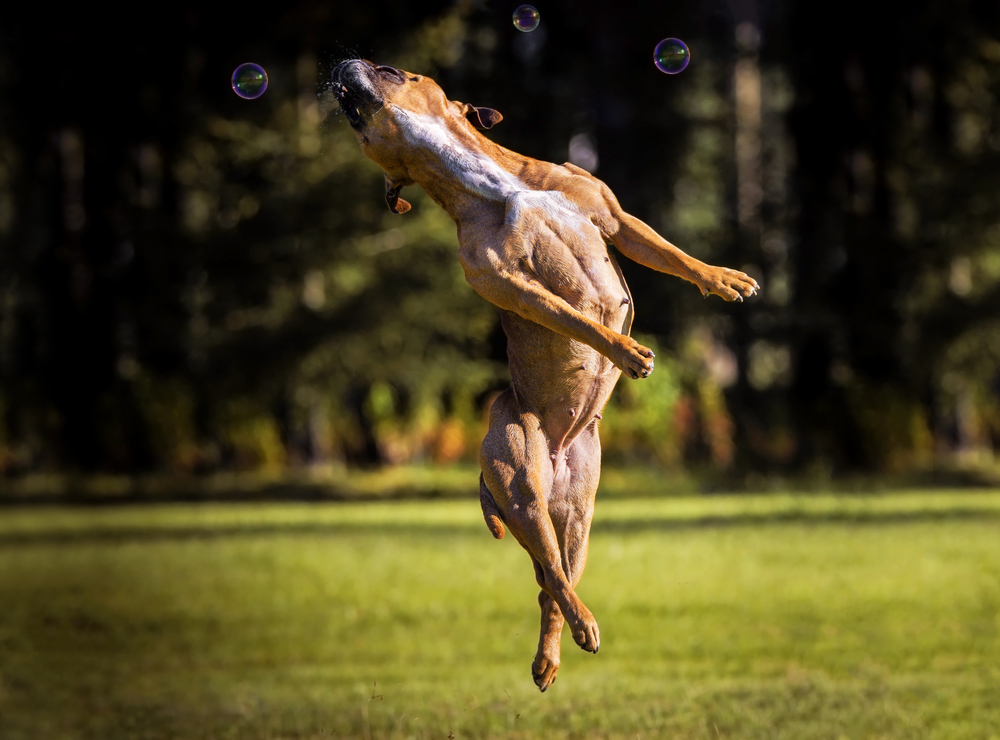
2. Pit Bulls Are Very Dependent
You might look at a rough, tough Pit Bull and think that you’re getting an independent dog. Nothing could be further from the truth! Any Pit owner will tell you their dog is a big baby! They tend to be extremely loyal and dependent on their masters to give them love, affection, and attention.
They can be very sensitive and needy, making it very hard to have them if you have a rigorous work schedule. It is important to make sure you have the time to take care of this particular breed.
3. Pit Bulls Are Banned in Several Common Living Spaces
If you’re a Pit Bull lover, you know that these dogs are pretty feared among the general population. It’s no surprise that these dogs often find themselves on banned breed lists from apartment complexes, dog parks, and other communal spaces.
If you live in an apartment complex currently, you might want to get approval from your board before ever even considering a Pit Bull. Many people find themselves surrendering their dogs due to rental restrictions.
Before you even commit, you should know for sure whether you are allowed to have Pit Bulls or not. If you aren’t, don’t think you can sneak anything past your landlord. They are professionals at picking up holes in stories and someone is bound to see them from one point to another.
It isn’t worth the risk and it certainly isn’t worth the impact it will have on the animal if you have to rehome them.
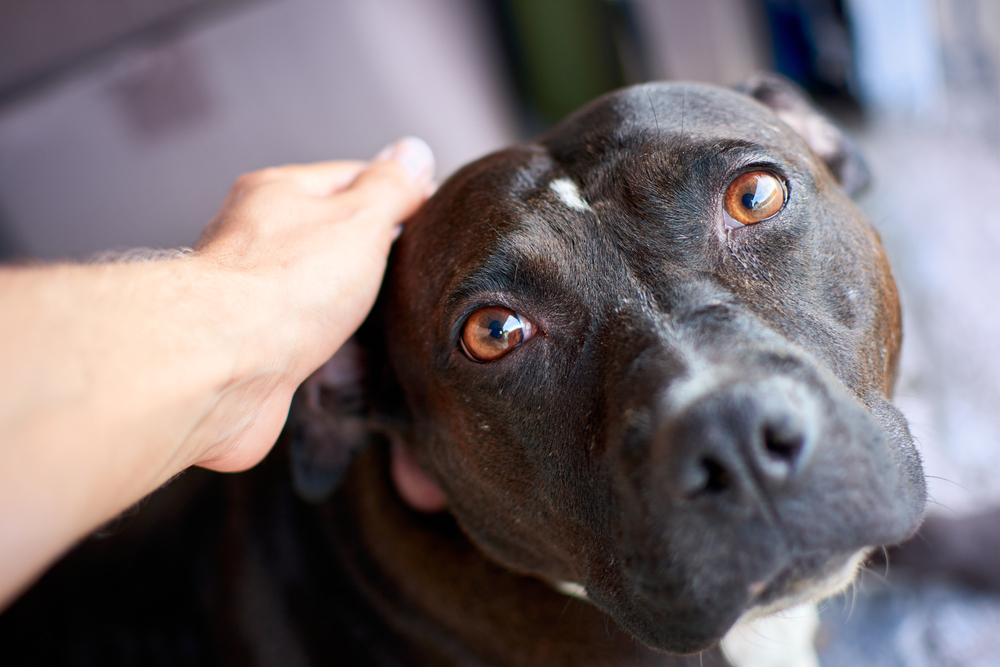
4. Pit Bulls Can Be Challenging for Novice Owners
While Pit Bulls are lovable, snuggly, goofy pooches, they aren’t the easiest dogs for beginners. Not only can Pit Bulls have certain genetic health conditions and other issues related to poor breeding, but their temperaments can be a challenge.
Some Pit Bulls can be very headstrong and sometimes even aggressive, and if you don’t have a firm enough handle on it, they might very well run the show. While every temperament will be different, so use your discretion, you should potentially select another breed if you aren’t confident you’re up for the challenge.

Conclusion
Ultimately, the answer to your question is that people can suck. Because of that, they have given dogs like Pit Bulls a very intense reputation to unwind. While there are still so many Pit Bulls in rescues, shelters, abusive situations, and backyard breeding operations, finding an authentic breeder can be very difficult.
Many breeders will not want to be associated with this particular breed because it is such a controversial subject. Ultimately, we should do our parts to ensure that we advocate for Pit Bulls, raising awareness. Over time, we hope that the stigma will change!
Featured Image Credit: Chatuphon Nachanta, Shutterstock




